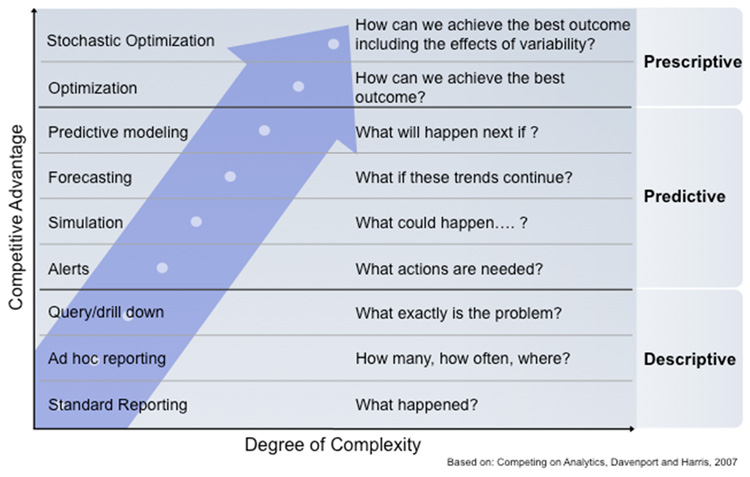Is the age of supply chain analytics upon us?
Some say yes, especially IBM, which has been making a real push for greater adoption of analytics as a core foundation of its Smarter Supply Chains and Smarter Commerce initiatives.
In our experience, most supply chain professionals simply think of analytics as information tools that business users look at to help them make better decisions. But the reality is more nuanced than that.
On a supply chain videocast this week on our Supply Chain Television Channel, IBM's Dr. Michael Watson explained a supply chain optimization breakthrough IBM has just made that it calls "multi-objective optimization" - the ability to calcuate trade-offs between two or more objectives (say cost and service) in a single optimization run. (To see the full videocast, go to Videocast: Supply Chain Optimization Breakthrough: Multi-Objective Optimization.)
But as an introduction to the main material of that broadcast, Watson positioned optimization as a subset of a new era of powerful supply chain analytics, using a framework developed a few years ago in a book called Competing on Analytics, by authors Thomas Davenport and Jeanne Harris.
Those authors identified three different types of analytics, as shown in the graphic below:
Descriptive: What most of us think of in terms of analytics - basic information that helps us understand what has already happened in terms of supply chain performance
Predictive: Insight into what is likely to happen in the future based on the current course or current assumptions.
Prescriptive: System-generaed recommendations on what a company should do to meet its objectives or make the best decision possible at a given decision-point.
The Different Styles of Suppy Chain Analytics

Source: IBM, Based on "Competing on Analytics," Davenport and Harris
The last category is especially interesting, as Watson says we are already seeing companies using real-time optimization tools to make supply chain decisions in an automated fashion.
Have a comment? Send it at the Feedback button below.
|